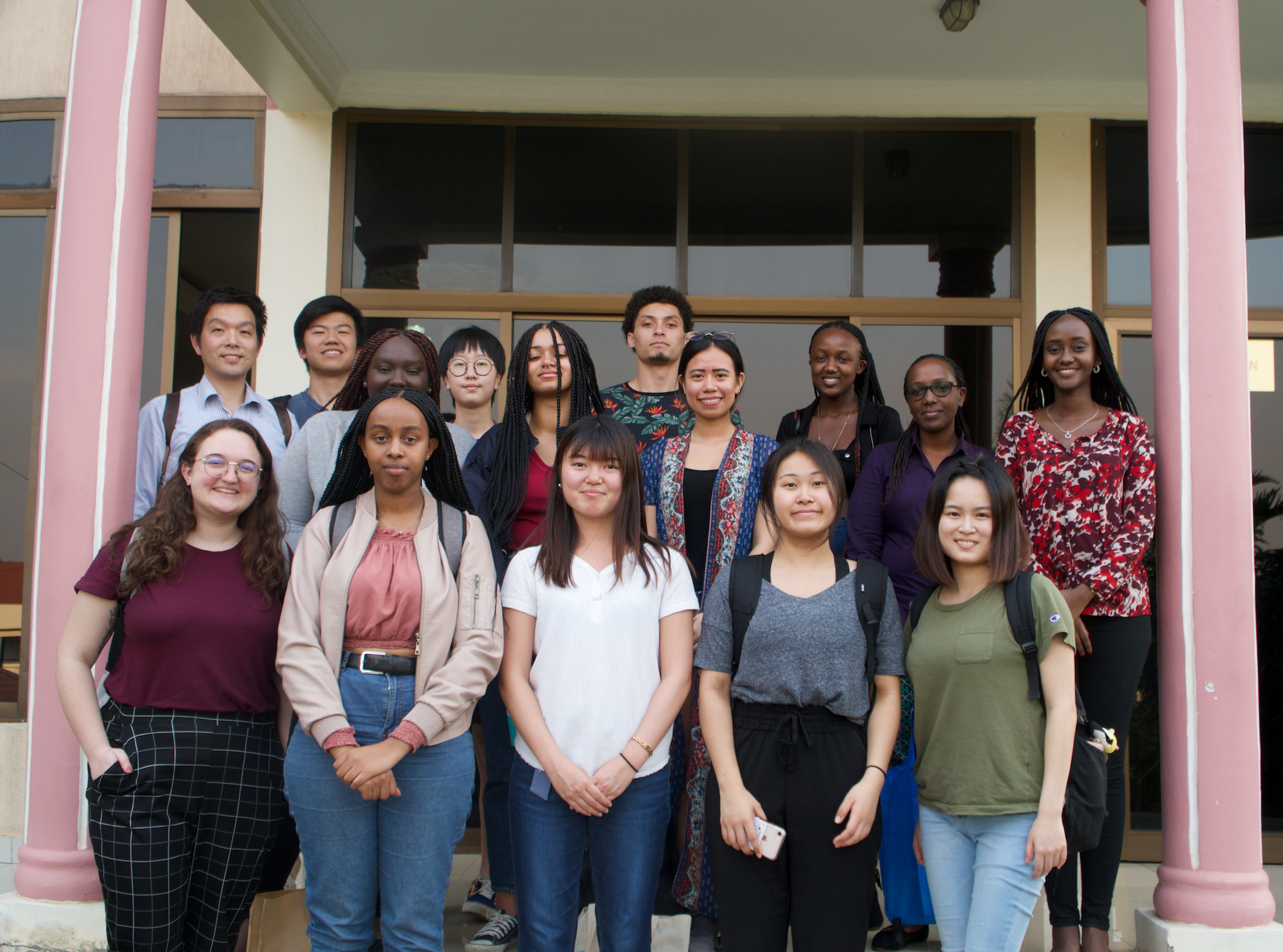On January 15th 2020, a delegation of 13 students from Soka University of America led by Professor Tetsushi Ogata paid a learning visit to Never Again Rwanda. The purpose of this visit was to learn about the interventions NAR has used to reconcile Rwandans after the 1994 genocide against the Tutsis. The Peacebuilding Team Leader Debby Karemera, Head of Research and Advocacy Odeth Kantengwa, and the Head of Information and Communication Immy Mulekatete received the group.
To give them a better understanding of NAR’s work and mission, the students began by watching two documentaries on inter-generational trauma and the strategies that Rwandans have used to deal with it and another on the Role of the Gacaca Courts/ transitional justice has played in the reconstruction and reconciliation process. After gaining insight into what NAR does, the students then had the opportunity to ask relevant questions. The first question was about the Spaces for Peace initiated by NAR where people meet and discuss their traumatic experiences.
Debby explained that the societal healing and participatory governance (SHPG) program was launched in 2015 in partnership with Interpeace and through this program, various groups consisting of roughly 30 individuals were established in several districts and facilitated by psychotherapists for members to discuss some of their wounds. The students were also curious about the reintegration of ex-perpetrators of genocide into society and the lives of children born as a result of sexual violence. To answer these questions, it was mentioned that the government and civil society organizations continue to play roles in creating spaces to prepare ex-perpetrators for their reintegration. It was also mentioned that some of NAR’s spaces for peace are exclusively for women that survived sexual violence or children born of rape to talk about their traumatic experiences with the guidance of psychotherapists.
Regarding Gacaca, the students wanted to know how effective it was and if Rwanda’s transitional justice system can be applied in other countries. Odeth explained to that Gacaca was born from the Rwandan traditional justice system and was effective in providing justice to the Rwandans because genocide suspects were taken back to where they committed their crimes to face justice. With the support of Immy, she further explained that ‘copy-pasting’ Rwanda’s model might be applicable to another country or yield the same results due to the difference in context.
Through this Q&A session it was also highlighted that Never Again Rwanda is able to impact the international community through the Peacebuilding Institute (PBI), where students and young professionals come to Rwanda and study conflict resolution and prevention in the bi-annual two-week program. The Great Lakes Program (GLP) was also mentioned as another way in which NAR promotes lasting peace beyond the borders of Rwanda. Students learned that through the GLP NAR has played a critical role in strengthening cross-border communities’ resilience against the chocks from recurrent crisis and conflicts with regional ramifications, deconstruction of prejudices and strengthening the attitude of empathy and solidarity among border populations.
To end the visit, Professor Tetsushi thanked NAR for giving the students the opportunity to learn about the Rwandan journey of healing and reconstruction and lauded the efforts of NAR in contributing to creating sustainable peace.


